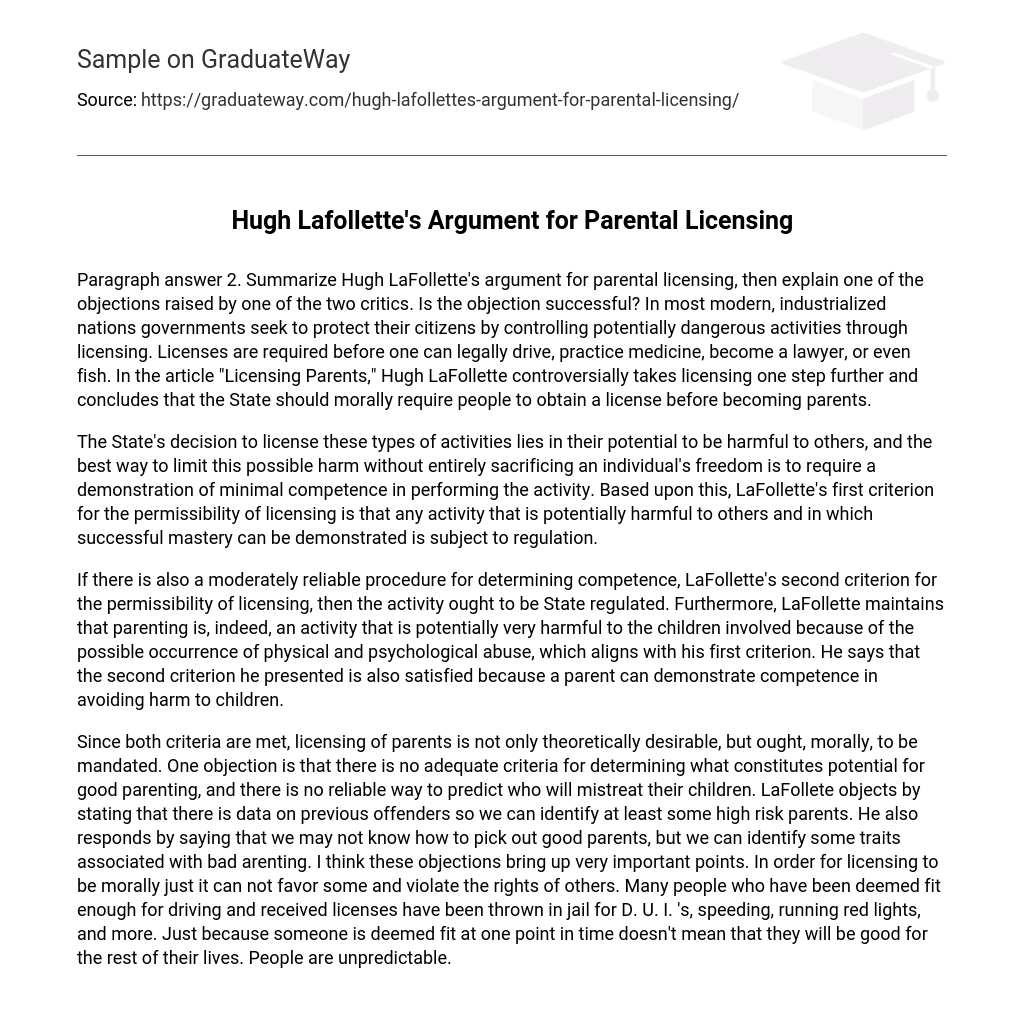Paragraph answer 2. Summarize Hugh LaFollette’s argument for parental licensing, then explain one of the objections raised by one of the two critics. Is the objection successful? In most modern, industrialized nations governments seek to protect their citizens by controlling potentially dangerous activities through licensing. Licenses are required before one can legally drive, practice medicine, become a lawyer, or even fish. In the article “Licensing Parents,” Hugh LaFollette controversially takes licensing one step further and concludes that the State should morally require people to obtain a license before becoming parents.
The State’s decision to license these types of activities lies in their potential to be harmful to others, and the best way to limit this possible harm without entirely sacrificing an individual’s freedom is to require a demonstration of minimal competence in performing the activity. Based upon this, LaFollette’s first criterion for the permissibility of licensing is that any activity that is potentially harmful to others and in which successful mastery can be demonstrated is subject to regulation.
If there is also a moderately reliable procedure for determining competence, LaFollette’s second criterion for the permissibility of licensing, then the activity ought to be State regulated. Furthermore, LaFollette maintains that parenting is, indeed, an activity that is potentially very harmful to the children involved because of the possible occurrence of physical and psychological abuse, which aligns with his first criterion. He says that the second criterion he presented is also satisfied because a parent can demonstrate competence in avoiding harm to children.
Since both criteria are met, licensing of parents is not only theoretically desirable, but ought, morally, to be mandated. One objection is that there is no adequate criteria for determining what constitutes potential for good parenting, and there is no reliable way to predict who will mistreat their children. LaFollete objects by stating that there is data on previous offenders so we can identify at least some high risk parents. He also responds by saying that we may not know how to pick out good parents, but we can identify some traits associated with bad arenting. I think these objections bring up very important points. In order for licensing to be morally just it can not favor some and violate the rights of others. Many people who have been deemed fit enough for driving and received licenses have been thrown in jail for D. U. I. ‘s, speeding, running red lights, and more. Just because someone is deemed fit at one point in time doesn’t mean that they will be good for the rest of their lives. People are unpredictable.





